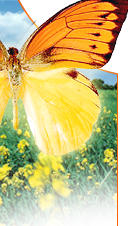September 11th and the Earth Charter, by Steven
C. Rockefeller. This article explains how the global vision of
peace, justice, and economic and ecological interdependence expressed
in the Earth Charter can be used to combat terrorism. "At
the heart of the Earth Charter is an ethic of respect and care
for all life," and this must continue to be fostered on the
local, state, national, and international level in order to create
a peaceful and sustainable society.
Towards the World Summit on Sustainable Development,
by Richard M. Clugston. Dr. Clugston ponders how far we have come
since the Earth Summit in Rio ten years ago, and considers the
great gains we still must make in order to lay down the ecological,
social, and spiritual foundations of the "good life"
for all future generations. He stresses the importance of using
the Earth Charter at the WSSD to help develop a more complete
framework for sustainability.
The Earth Charter. This is a reprint of the Earth
Charter, complete with Preamble, Principles, and The Way Forward.
Questions and Answers Concerning the Earth Charter. This
piece answers eleven of the most frequently asked questions on
the Earth Charter, including "What is the Earth Charter?",
"Why is the Earth Charter important?" and "Who
wrote the Earth Charter?".
Mission and Programs of the Earth Charter Initiative.
The mission of the Earth Charter Initiative is to establish a
sound framework for a sustainable world based on respect for nature,
universal human rights, economic justice, and a culture of peace.
Earth Charter Initiative programs have been developed in the areas
of education, business and professional accountability, and religion,
to name only a few.
History of the Earth Charter. This article is an
overview of the Earth Charter's historical context and significance,
starting with the development of the United Nations in 1945, to
the issuing of the final version in 2000, to the impact of the
Charter now.
Reflections from the Founders of the Earth Charter Initiative,
including Mikhail Gorbachev, Maurice F. Strong, and Ruud Lubbers.
Each of these renowned world leaders discusses the importance
of shaping a new value system and integrating a new ethical vision
for the global society through the Earth Charter.
The Earth Charter: The Journey from The Hague 2000, by
Parvez Hassan. Mr. Hassan discusses the international significance
of the Earth Charter as a historic and inspirational document
that has launched a global campaign "to change human societies
in their relationship not only to each other but also to our planet
Earth."
The Earth Charter: Science and Spirituality, by
Kamla Chowdhry. In this article the Earth Charter is used as a
paradigm within which the dominant patterns of production and
consumption, as well as our current notion of progress, which
is measured in terms of economics, are analyzed and subverted.
Indonesian Realities and the Promise of the Earth Charter,
by Erna Witoelar. Ms. Witoelar addresses the dilemma of implementing
sustainable development practices in a developing country that
faces considerable environmental, social, and economic challenges.
She urges the Earth Charter Commission to show resolve in working
towards the implementation of Earth Charter principles on a global
scale.
Earth Charter in Action, by Stephen L. Smith. This
article documents examples of countries, international organizations,
community groups, and individuals around the world using the Earth
Charter to educate those around them and create positive change.
The City of Urbino and the Earth Charter, by Massimo
Galuzzi, Mayor of Urbino.
The Russian Republic of Tatarstan Adopts the Earth Charter
as a Blueprint for Development.
Earth Charter Teaching Resources.
An Affirmation Not Yet Realized, by John A. Hoyt.
Mr. Hoyt expresses his disappointment in the lack of overt affirmation
for animal rights in the Earth Charter, but expresses hope that
the fundamental principle of respect for the intrinsic value of
life that forms the foundation of the Charter will be extended
to animals as well.
Religion: Ethics and the Earth Charter - an Ecumenical
Forum, by Dieter T. Hessel. This forum was edited from
various presentations on the Earth Charter in 1999 and 2000. Includes
comments from Steven C. Rockefeller, J. Ronald Engel, Jay B. McDaniel,
Mary Evelyn Tucker, Stephanie Kaza, Douglas Sturm, Christina L.H.
Traina, and Rosemary Radford Ruether.
